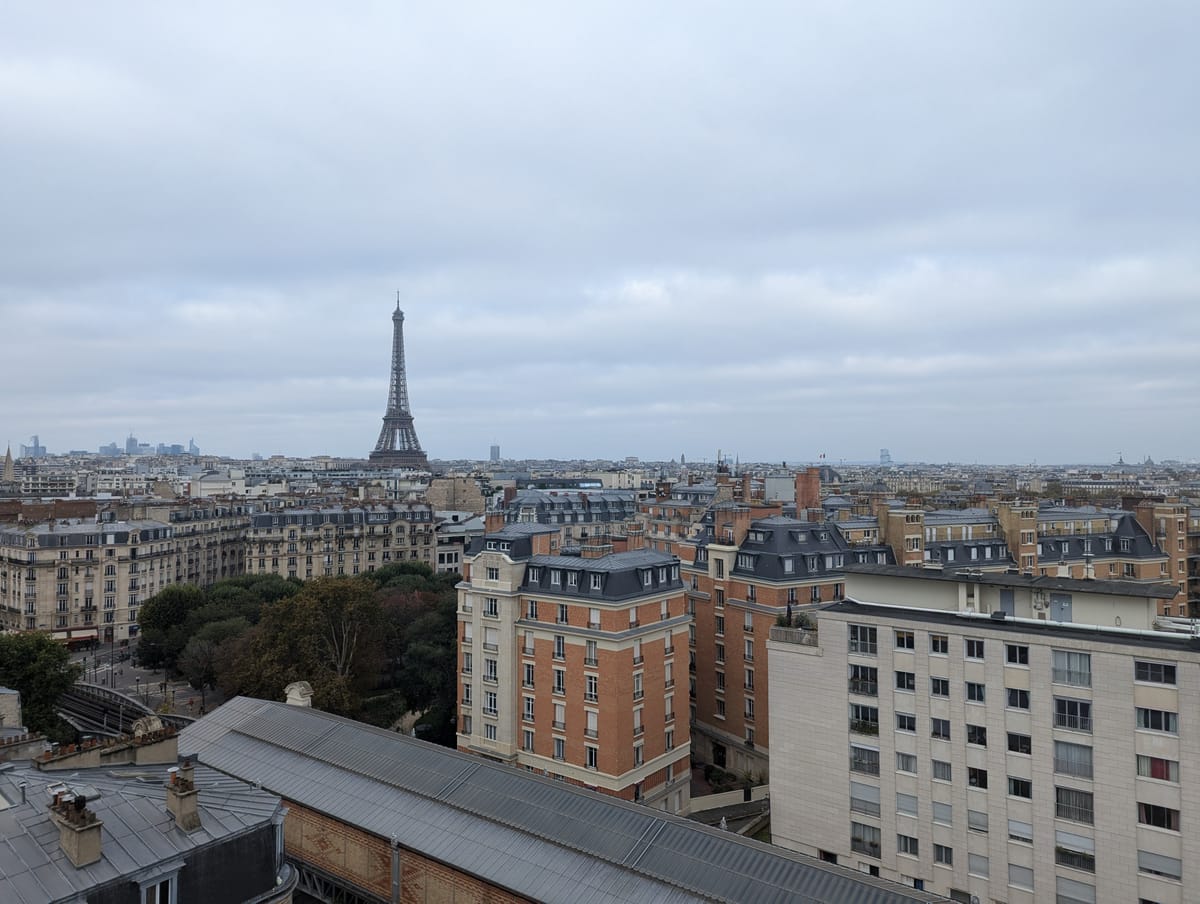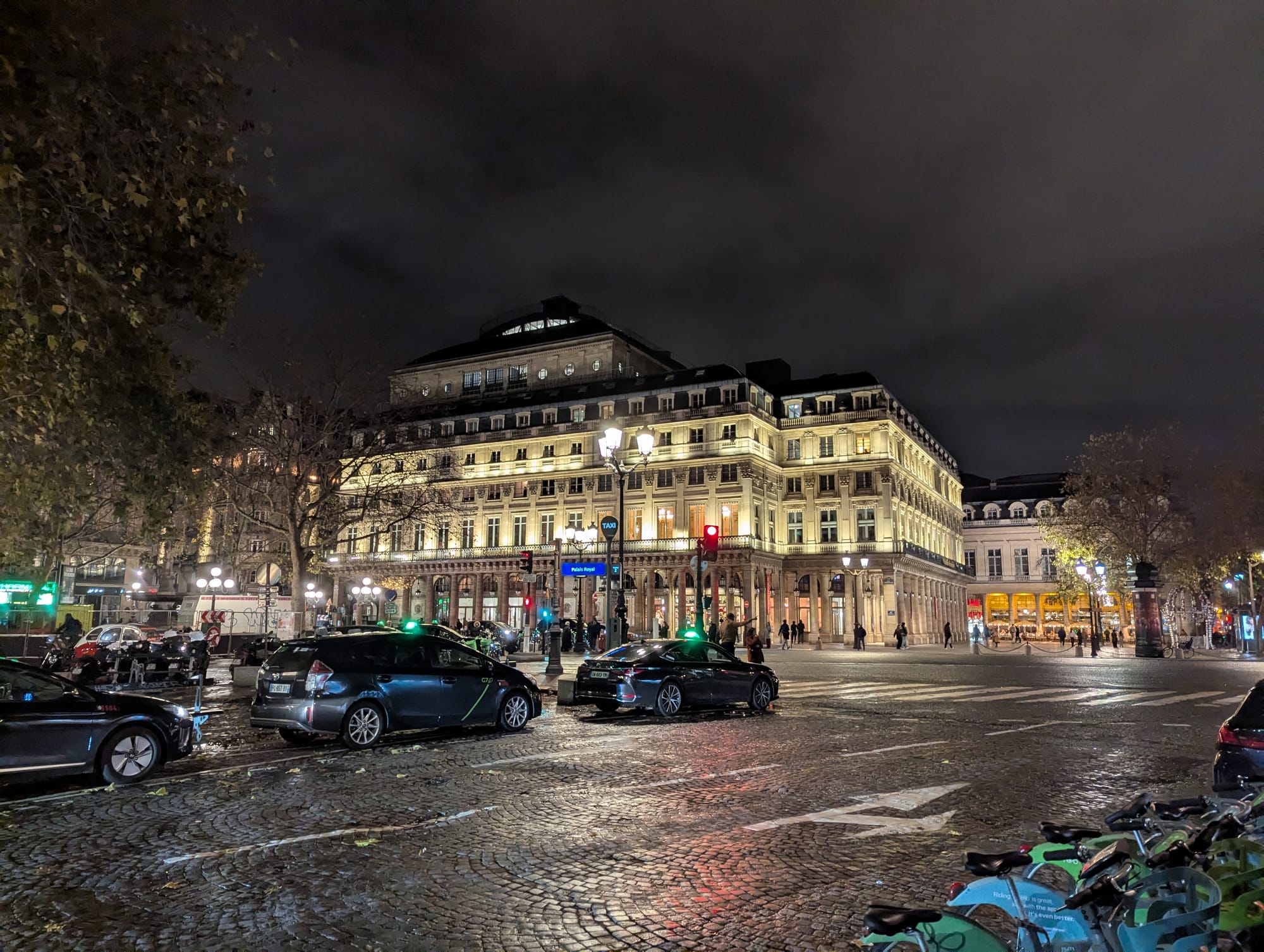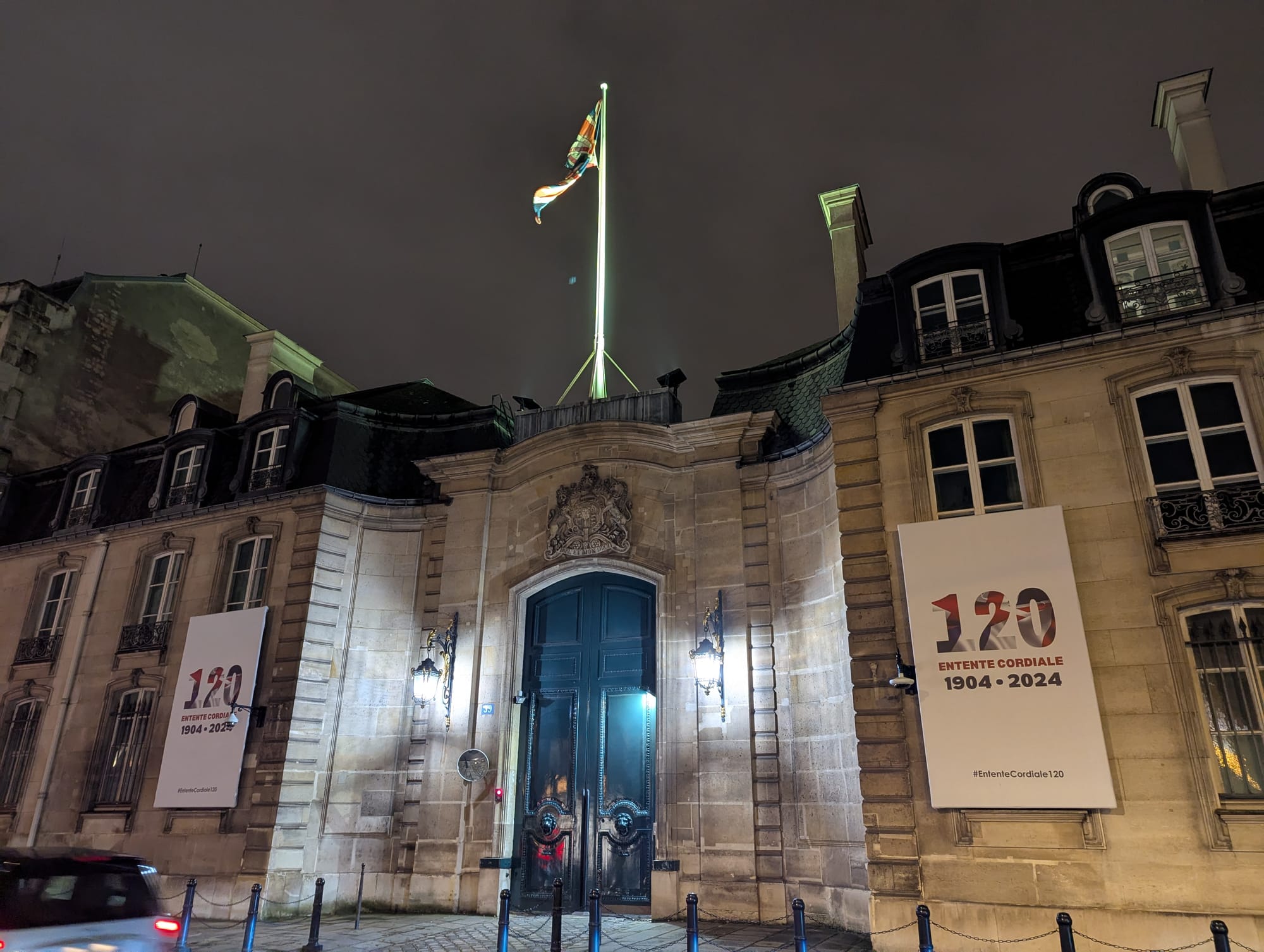Moving to Paris: A useful if potentially incomplete guide

In October 2024 I moved to Paris and while I did so I wrote down all the handy practical advice people gave me, as well as the things I learnt which I wish someone had told me. Now you, dear reader, can also benefit from this advice should you ever move to Paris, whether it be in this life or only in y0ur heart.
Get a Parisian address, even if it's not yours
- French bureaucracy simply does not progress unless you have a local address.
- Find a local who you can put as your postal and residential address until you find your own. This could be a friend of yours or a colleague.
- You can also put your AirBnB as your address, but check that you can get mail there. Remember to change your address after you leave. There is no end of hassle chasing your accommodation for mail after you've checked out.
- Pick one temporary address and stick to it.

Arrange your financial affairs before you move
First of all, none of this is financial advice. Do your own research, and you may very quickly learn that:
- You’re a resident if you earn your main income in France and spend > 6 months in France that year. If you enter France with fewer than 6 months left in the calendar year, then you are (probably) not a French tax resident until the following calendar year. This may mean you remain a tax resident of your old country until then.
- French taxes are levied on your world-wide income, not just your French income (this ain't Singapore).
- It’s often useful to sell your investments before you enter France, even if you re-buy them, because there’s no deemed disposal scheme like there is in Australia. However, for this to mean anything, you must sell and re-buy them before you become a French tax resident.
- Capital gains are taxed fully, but with a sliding discount by length of tenure. You can also opt to tax some investment income under your income tax scale if it’s more advantageous.

Get a French bank
There are eight, main brick-and-mortar banks in France: Crédit Agricole (CA); BNP Paribas; Société Générale (SocGen); Caisse d'Epargne (CE); Banque Populaire (BP); Crédit Mutuel; La Banque Postale; and, LCL. Opening an account as a foreigner can be an ordeal.
- I went with SocGen because they tend to be more understanding of foreigners moving to France for work. I contacted the branch in the building I work at and we spent three weeks politely tag-teaming over email about the forms and documentation to open my account. I would recommend SocGen as a good starter bank, but I've found their banking app a step-down relative to Singapore or Australia. I give them a B- all up.
- N26 is a neo-bank based in Germany but operating in France. I give them an A- overall. Even though I don't bank with them, I managed to open an account in France in less than an hour - it was all done on their app by taking photos of my documentation. A friend of mine use N26 for their regular bank and love them. The only reason I didn’t stay is that they don’t offer the Livret A savings account, which is the savings account in France.
- Bourso Bank is another neo-bank but actually owned by SocGen so they can offer the Livret A and other financial services specific to France. I’ve had some trouble opening an account but they look good and I will keep trying. Grade is TBD.
- HSBC is an international bank which I'd rate a D+ purely by reputation. I’ve never used HSBC but other expats have not had a great experience.
Note. In French, a prelevement is a debit. You will pay your bills with prelevement.
Supermarkets here are great
In general, Monoprix is better than Carrefour which is better than Franprix. Although there’s a lot of variation between stores, as a rule of thumb you should avoid living anywhere that requires you to shop at a Franprix.

- Picard is France's best kept secret. It's a frozen food supermarket which phenomenal oven ready meals. Highly recommend getting a free loyalty card. It is sometimes acceptable to live in Franprix desert if you are near a Picard.
- Ordering groceries online is very doable, though I’ve not done it myself.
- Cooking at home can be tricky in a small kitchen. Many expats get an electric cooker like and Instant Pot because while some kitchens lack a stove-top oven, all of them have a power outlet.
- If it’s your first time at a given supermarket, always get a receipt, you’ll often need to scan it to go through the exit gantries. This is largely the case for self-service checkouts, however, some stores with staff operated cash registers still require you to scan to exit. Err on the side of taking a receipt to be safe.
Phone
- France’s international dialling code is +33
- If you want to choose your new French mobile number, go to Free Mobile and get a 2 Euro prepaid plan to start with. Pick your number on the website, if you don’t like any of them, then clear your checkout basket and reorder, the list will refresh. Once you have a number you like, port the number to the plan you want. This can take 2-weeks before the change is effected, but the process is very straight forward.

Renting
- To rent, you must submit your dossier to the landlord (typically via their real estate agent). This usually includes but is not limited to.
- Photocopy of ID and proof of your right to reside in France.
- Proof of your income - the HR team at your work will prepare an attestation for this.
- Proof of a guarantor - If the rent is more than 1/3rd of your income, you will need a third party to guarantee that they can pay the rent if you can't.
- Letter of Recommendation from your previous landlord - you can write this and have the landlord sign it. Be sure to say how reliable and quiet you are (not to mention easy on the eyes, I'm sure).
- Bring a print out of your dossier to rental viewings. Have it ready to give to the agent if you like the place. Listings move quickly in Paris, if you wait to get home to email your dossier over, you'll probably lose the apartment.
- Search for apartments on Jinka. This aggregates all the other sites like SeLoger, so it’s the only one you need to check.
- I also recommend you create an account on Gens de Confiance. You need to be sponsored by three people already on the platform to view listings. Ask your work colleagues for sponsorship because they will probably have three accounts between them. These listings also appear on Jinka but you’ll need a sponsored account to read the details of the listing.
- I wouldn’t get an agent to help with the apartment search / to represent you unless your company pays for it.
- I was concerned that I'd need an agent to negotiate in French on my behalf but in hindsight it was completely unnecessary. I simply communicated with the landlord's real estate agent over email, and we Google Translated each others’ responses.
- On top of Jinka and Gens de Confiance, you can also contact real estate agencies directly and ask them what they have. They’ll organise viewings for you. Do this for multiple agencies and you’ll cover a good chunk of the market.

Apartment
- As we all know from Emily in Paris, French apartments start on the ground floor and go up to the 1st, 2nd etc. from there.
- Get an apartment on the 2nd floor or above. Maybe get one on the 1st floor if it faces the courtyard. Lower down you’ll get street noise and (depending on neighbourhood) people tapping on the window.
- Furnished apartments must provide a regulated minimum number of items to be considered furnished and, if those conditions are met, the landlord may rent the apartment on a more generous lease agreement (for them). Most furnished apartments will provide that minimum and no more.
- Unfurnished apartments are truly unfurnished. In most cases you’ll need to install your own fridge and washing machine as well as remove it when you leave. I'm told this is considered very normal in France.
- You must take out civil liability insurance for your home. Everyone in France does this. The French positively love civil liability insurance. Even my colleague’s five-year old daughter has a civil liability insurance policy. For you, reader, I recommend getting the most basic policy possible via your bank. After 1-year you can change policy without penalty.
- Many apartments in Paris have a fireplace, but city regulations mean they’re mostly boarded up. Paris does not normally allow any operational fireplaces. Your lease may require you to have the chimney cleaned, but if it’s non-functional it’s usually not required.
- Your apartment probably won’t have a number. Your apartment will be indicated by the level (etage) and direction (gauche/g or droite/d). You may also attach your name to it e.g. Chez Cameron or Chez Lamartine. You will need to give this information to technicians, e.g. to setup your internet you tell them it’s for 10 Rue Sauffoy, Etage 08 Droite (Chez Amy) or 64 Boulevard Lamartine, E 08 D (Chez Sam).
- When you move in, you need to pay: bond, rent and agency fees. These are stipulated in the lease (bail). You are the locotaire (occupier), and the owner is the lessor.
- When you move in, you will have a professional inventory taker there to take the inventory.
- Bring your Certificate of Civil Liability Insurance. Electronic was fine for me. The inventory taker will verify that you are insured and therefore eligible to move into the apartment.
- Bring your passport or ID.
- You have 10 days to validate anything that couldn’t be validated by the inventory taker. In my case, anything with electricity needed to be validated later because the apartment didn’t have electricity until after I moved in.
- Take a photo of the “Linky Box” and record the PRF number. You’ll need this for setting up your electricity plan.
- Take a photo of the fibre-box for your internet and record the number. You’ll need to give this to you ISP.
- Get the name of the previous tenant. It can help setup your utilities because the utility company will ask if the plan is for “Chez <name of previous tenant>” and you’ll say “Yes, but now it’s Chez <your name>”
- You can change energy supplier anytime at no charge. For minimal hassle, setup up your electricity with any provider then change later. I went with EDF (the state provider) on the regulated tarif (the tarif blue, i.e. base tarif).
- France uses Type CEE 7 power plugs i.e. two round pins. French electricity is 230v 50hz which is the most common standard in the world. However, it’s not the standard used in North and Central America, most of South America, Japan, Taiwan, Korea or the Phillipines. If your appliance is from a 220-240v 50hz country, it will work in France so long as it has a Type CEE 7 pin or pin adapter.
- Note that "cave" is the basement. You might have a storage locker there.
- Having a medical practitioners office in the lobby is normal.
- BTW you pronounce the p in psychologist.
Electricity
- EDF is the state operated provider
- You can get the regulated tarif, which is fixed rate. Or market rate tarifs, which have peak / off-peak rates.
- You can change any time.
- You can setup your connection completely online. Go to EDF, enter your details, enter the PRF from your Linky box, hit submit.
Internet
- You need a fibre-box in your home (it’s the same thing as a modem, but modem is for DSL or cable, while fibre-box is for fibre optic). Most homes have a fibre-box.
Cycle
- You can rent a Velib from a parking station anywhere in Paris. The Velib is like the Boris Bikes in London. Similar quality and convenience.
- You can also rent a Veligo from the Paris government, which is like a Velib but you don't dock it in a docking station, you can instead take this home with you.
- No bikes are allowed on the metro. Not even folding bikes. None. This ain’t Singapore.
Metro & RER
- Get a Navigo pass. The Monthly and Day Passes give you unlimited travel for their respective time period, whereas the Liberté Pass simply tallies all your trips for the month then bills your bank account for trips taken.
- If you take more than 35 trips per month, the Monthly Pass is better value.
- The Liberté is, like the Day Pass, capped at 12 Euro per day, so after you spend 12 Euro your subsequent trips that day are free.
- Note, these passes are linked to you individually. You’ll need to provide a photo that’s printed on your card with your name. The photo doesn’t need to be square, but if you upload a rectangle / portrait photo, then on the card your face will be stretched wide to fill the square. Add some white space to the image if that’s the case.
- If you have a regular Navigo that you top up at metro stations, you can usually top it up on your phone but my friends have found this to be a little patchy.
- Some Metro seats fold up and down. When the Metro is crowded, you must stand-up in your folding chair to make room for others.
- You’re rarely more than 45 minutes from anywhere in Paris.
- To go to/from Charles de Gaulle, you need a special ticket. Same for other airports.

Safety
- Pickpockets are only a problem if you’re a tourist in a tourist area looking like a tourist.
- The north east of Paris past Stalingrad is pretty sketchy.
French manners
When you enter a store:
- Always say bonjour. Add Madame/Monsieur if you feel daring.
- Always say bonjour.
- Always. say. bonjour.
- Don’t add “ca va?”, no need to say “je voudrais”. Just “Bonjour” and state your order. Comme ca: Bonjour, un expresso si vous plait.
- If you’re unsure, ask “Parlez vous francais?” after saying bonjour. Many staff speak English fine.
- Staff may ask, after they say bonjour, if you want “Emporter” (take away) or “sur place” (eat in). Do you want “Assiette” (serviette), “bien cuit” (well done, especially relevant for baguette), “autre chose?” (Anything else?) and “Billet / ticket”? Usually you’ll say “No, ca tout”.
- When you leave, your safest bet is to say “Merci, au revior”.
- You can say bonjournee / bonsoiree but this requires some mid-level French skills to pull off. Bonjour(nee) is kind of acceptable in the evening as a standard greeting, but bonsoir(ee) is more sophisticated. Some say you switch to bonsoir at 6pm sharp, others when the last ray of sun is gone. Don’t worry about the exact timing too much.
- French people are evening people.
- When you greet people who you know, do le bise. Go left then right. Touch cheek to cheek, never lip to cheek and don't hover your cheek in front of there's you must make contact. Make a very subtle kissing sound - barely audible. You do it male/female, female/female and male/male. Many workplaces do it when you come in for the morning. Although my workplace didn’t do le bise at the office, we did do it when we met at social gatherings.
- Do not say désolé like you would say sorry in English. Instead, say pardon or pardonnez moi
Maintaining the outward illusion that you are French
- Wear neutrals. Black, grey, white, beige
- Wear a scarf.
- Wear a hat. Not a beanie, a proper hat. There's at least one person wearing one on every metro.
- Order baguette. Carry it openly.
- Always carry an umbrella. Paris is rainy and even when it's dry, umbrellas are just so dashing, aren't they?
- Do not go anywhere with air-plane luggage. Carry satchel bags, tote bags or IKEA bags. The absolute God tier “look at me I’m French” way to carry stuff is a cheap, folding two-wheel chariot de course.
Useful links & apps
- Google Maps
- Supermarkets are all very poorly rated. 3.5 is a pretty good supermarket.
- Restaurants are a little poorly rated. 4.5 is quite good.
- Boulangeries are accurately rated. 4.8 is a 4.8
- CityMapper is better than Google Maps for public transport because Citymapper updates based on route closures, strikes and line works.
- Bolt & Uber are both available in Paris. I’m sure there are others.
- https://www.veligo-location.fr/ for e-bike rental from the government
- https://en.selectra.info/ for utilities price comparison and signing up
- https://americanlibraryinparis.org/ English language library near work